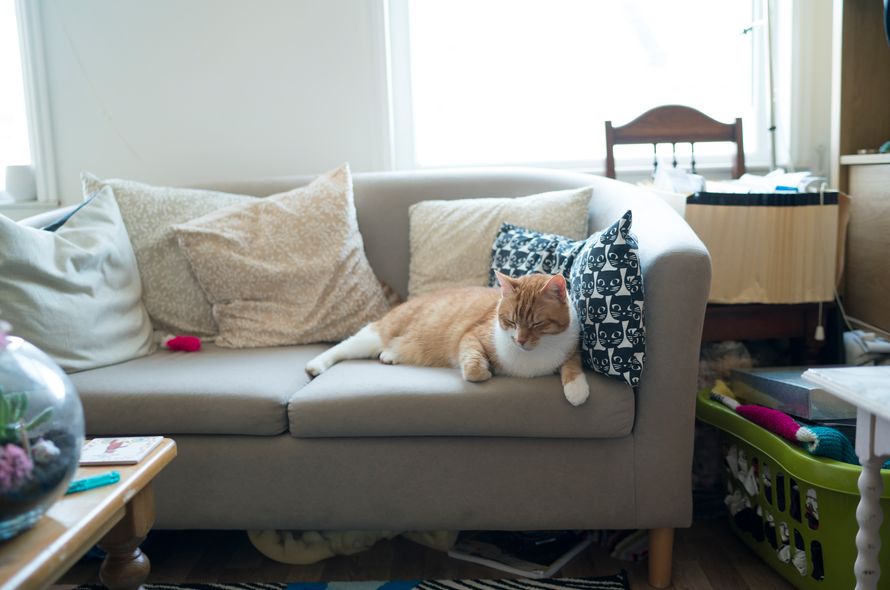
Fostering FAQs
How long will I be fostering an animal for?
The length of time that an animal will be on foster varies and depends on the individual. Generally, animals will be on foster until they are rehomed, and we do not always know how long this could take. Dogs will usually be on foster for anything from a couple of weeks to a few months, it very much depends on the dog and its requirements. If you cannot commit to a long-term foster, please let us know before you agree to take a dog so we can make sure you are the right foster carer for the dog. Adult cats can also vary with regards to length of foster, but typical behaviour fosters can be for a month or more. Pregnant cats, and mums with kittens will need to remain on foster until the kittens are 9 weeks old and weaned from mum (so anything from 10+ weeks). Kittens that arrive without mum will also need to remain on foster for 9 weeks, as this is when they can be returned to us for their early neuters.
Do I need a car to foster?
It is always ideal if a foster carer has their own transport, particularly if you live further away, but being in London we understand that this isn’t an option for everyone. Failing this, if you have any family or friends who can transport you in a car with the foster animal or can use a car hire service then this would be the next best option. We don’t test dogs on public transport so we don’t know how they might react; therefore we ask that if public transport needs to be used then you can try this once the dog is settled on foster. We also do not allow adult cats to be taken on public transport due to the stress it will cause. As an alternative, we are able to book a taxi to take you to and from site with either a dog or cat, but this is a last option and each case needs to be individually approved due to the cost implications.
Do I have to buy the animal’s food and supplies?
Each time you take an animal on foster we provide all the supplies that you need so we don’t expect foster carers to pay anything towards fostering. We will try and give you a large supply of things like food and litter, but when supplies run low it is the foster carer’s responsibility to contact us. We can either organise you to come and collect more from site, request supplies be delivered by our site transfers team, or order supplies online to be delivered directly to your home.
Can I adopt my foster animal?
Fostering is not meant to be a way to adoption. We need foster carers who can commit to fostering long term to help the many dogs and cats that require foster homes. We generally ask for a minimum 6-month commitment to fostering. If after this time you have a foster animal that you would like to adopt then we can discuss this with you. If you have family or friends that are interested in adopting your foster animal, please get in contact with the foster team and we can discuss this with you too.
Can I foster as a trial to see if we are suitable to adopt?
As stated above, we do not encourage fostering with a view to adopt. Fostering exists primarily to provide a calm and stable home for our animals in need of time away from the kennels and cattery, as well as to work on behavioural issues and to determine sociability with people. They are often not ready to be rehomed when they go on foster, and the aim of fostering is to get them to that point. For people that are seeing if they are suitable to adopt, these animals would not be appropriate to be trialled due to their requirements for foster. We also invest extensive training and support into our foster carers, so for them to adopt their first foster animal would be an inefficient use of time and resources. If you are interested in adopting a dog or cat but are not sure, please speak to our rehoming team who can advise you further on the process.
I have seen an animal on the website that I like, can I foster them?
Not all of our animals qualify for fostering. We only foster out those who have compromised welfare due to stress, those with medical issues and young animals that require more care. The animals who require fostering are nominated to us by the kennel, cattery and clinic staff so it is only these animals that we will put on foster, therefore we cannot fulfil requests to foster an animal that you might like on the website.
What training do we receive?
We hold an initial fostering induction, which covers all the important information about fostering policies and processes, communication, expectations and who to contact. We then provide an additional behaviour induction both for dogs and cats, that includes general behaviour and body language, identifying stress and about appropriate handling. For example, in dogs, we focus on training techniques, but with cats, we focus on environmental setup. Both these inductions are compulsory, however there are additional modules for mums and puppies/kittens and hand rearing puppies/kittens. Also, before each animal you take on foster, we will go into detail about each animal’s background, behaviours, needs and potential outcomes.
How much experience is needed?
For dogs we ideally need foster carers who have experience with a variety of breeds (though we often get large or bull breeds) and who have experience of dogs with behaviour issues such a separation anxiety and reactiveness to other dogs. However, we do take on people that have just owned or lived with a dog before. For cats, ideally we would like someone who has owned or lived with a cat before, and had experience with shy/nervous cats, but we do take on people with no experience.
What happens if I am going on holiday?
We understand that foster carers have their own commitments and may not always be available. If you know you have holidays or other commitments coming up, then please let us know of this and we will foster an animal with you around these dates. If you have had an animal on foster for a while and an unexpected commitment comes up, then please let us know as soon as possible and we will make alternate arrangements for the foster animal.
Do I need a garden to foster?
For dogs, the most ideal set up is direct access to a secure garden. However, we do foster dogs to homes with communal gardens or homes without garden but are close to parks/large green spaces. Some dogs do not require a garden, but this will be discussed with you. Cats are strictly not allowed outside whilst on foster, they must be kept exclusively indoors.
Do I need a spare room to foster?
Dogs do not require a separate spare room, but the size and space in the home might influence the breed or type of dog you can foster. For cats that require behaviour foster, they need access to a spare, unused room (i.e. spare bedroom), with which they can settle into and be their core territory.
Can I foster if I already own a dog/cat?
We prefer for both foster dogs and cats that they are they only animals in the home. However we can be flexible with this depending on the foster animal in need. Some animals will not be allowed to live with other dogs or cats, but this will be outlined in their assessments. For dogs that can live with other dogs, we would organise for the foster and owned dog to meet the foster dog at Battersea to see if they would potentially get along. For behaviour cats, there cannot be other dogs/cats in the home, but it is fine for a foster carer to take on kittens if they have dogs/cats in the home already.




